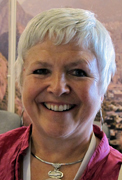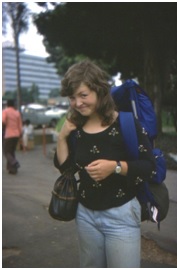Policy Bite: Electives, exchanges and ethics
 Español
Español
Policy Bite with Professor Amanda Howe, WONCA President-elect
How can we ensure mutual benefit when we go on study leave?
As part of my international work, I have just been asked to lead the ‘electives’ module for my medical school(1) - this is a usually a 1-2 month placement in the latter part of the course where the student chooses for themselves where they go and what speciality they link with. This week, we had the enormous pleasure of hearing four really inspiring talks from students about their electives in 2015. One had been to South Africa to work at the Chris Hani Baragwanath Hospital which serves Soweto; one to the Solomon Islands; one to the Philippines; and one had stayed in Norwich but spent her time with the homeless, refugees, sex workers and other marginalised communities cared for by our ‘City Health’ project. They had all clearly learned a huge amount, and our impression was that they had given a lot to their elective hosts – in work, in company, in appreciation, and in their newly acquired global health awareness. As a school, we have been considering the ways in which we can add value to the students’ learning from their elective, while also ensuring their safety and effective contribution.
Similarly, we encourage and applaud the exchanges that have grown up through our Young Doctors’ Movements(2) whose declared aim is to “…give doctors an opportunity to learn from each other in different cultural and socio-economic contexts. Aside from being an opportunity to broaden one’s professional and personal horizons, these exchanges provide the possibility to interact with different primary care settings and health care systems in general”.
Wonderful! If only we could all do these …. So I was interested to be taken aside by one of the younger students, who had concerns about the ethics of electives. She cited the costs and potential harms done by such visits, where resource-poor services might find their time and

effort distracted onto a group of foreign doctors or students who are only through – potentially taking most of their visit to acclimatise and understand the working context. She showed me a website with a set of challenges (3); some of which I could happily say we were already addressing, but others which we need to consider further. I was grateful for her ideas and thoughtfulness – and also mindful of my own experiences on elective 40 years ago (see photo of me in Abidjan, Cote d’Ivoire, 1975),* which gave me a vivid and lasting commitment to family medicine across space and time.
So the balance of risk and benefit need to be assessed, and made in a conscious and conscientious fashion: WONCA has made a contribution to this, by developing a checklist to support family medicine learning and exchanges through the International Federation of Medical Students Association (IFMSA), and also through many of its different communities. The Organizational Equity Committee has been discussing the importance of access to conferences – costs, visas, bursaries – so that our activities are not a ‘one way traffic’ open only to richer members. The Rural Working party has a stream of policies and publications which advocate for exposure to rural and remote settings through training placements. And no doubt many of our members host, supervise and send students and young doctors out to family medicine in many settings explicitly so they understand the fuller picture of health and health care – much of which needs to be set in a global context.
In conclusion – it is a great privilege to have the chance to go to another setting and learn from new colleagues. Those of us who work in medical schools need to consider how best to make this work for those who host our students and residents, as well as making sure they have a great experience. There is a huge richness of experience in our community of how this works. I would value hearing from colleagues about whether elective attachments in their own settings work, and if so what helps them to work for the host and the visitor.
1. Norwich Medical School, University of East Anglia – see www.uea.ac.uk/medicine
2. See vdgm.woncaeurope.org/content/exchanges
3. MedSin ethical electives -medsin.org/advocate/policy-statements/ethical-electives
See Amanda's 2015 policy bites collection